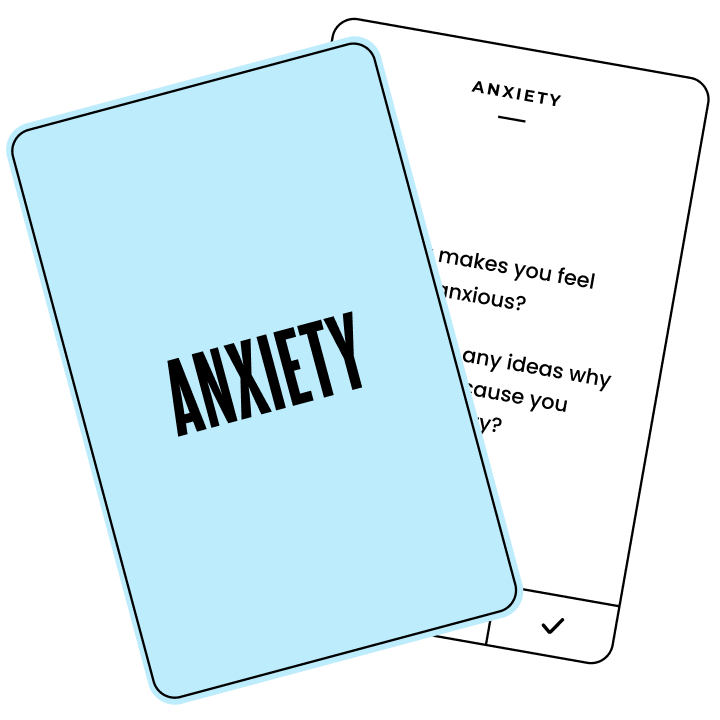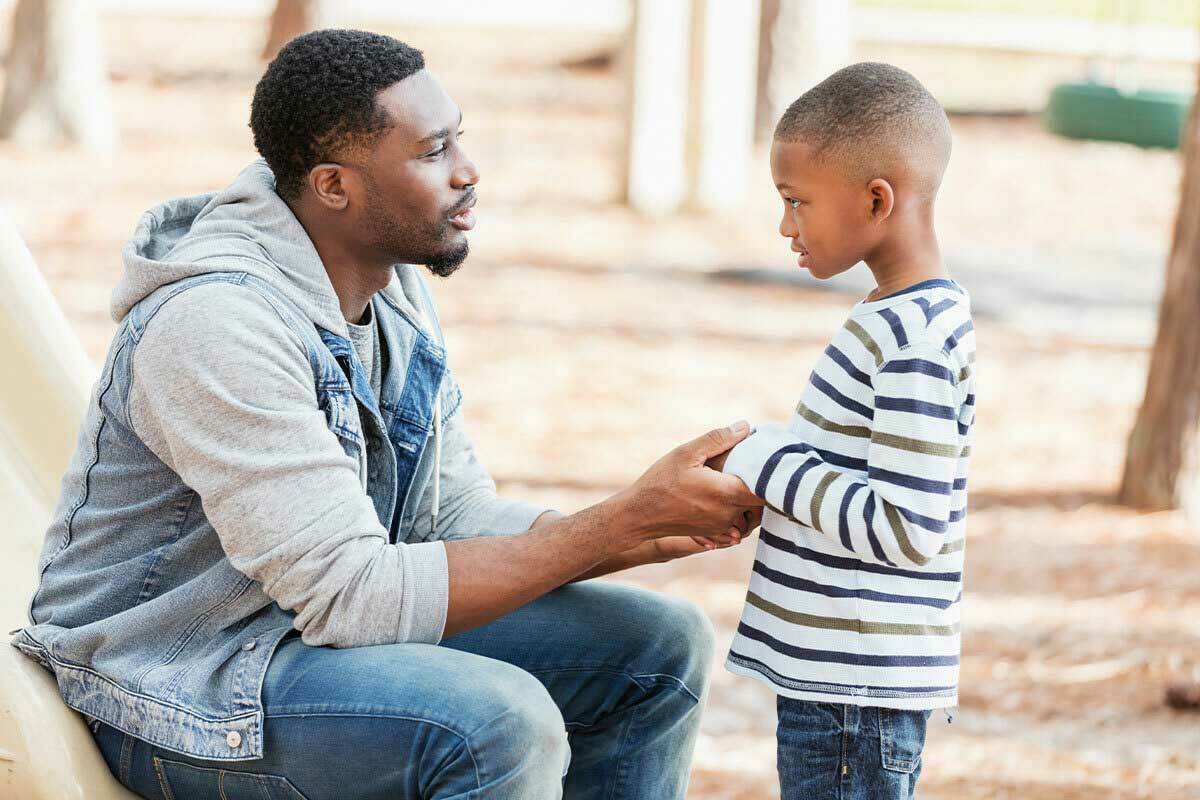
Resources
Get the tools you need to have better conversations with your child.

Listen In: a podcast
Listen In is a podcast mini-series offering parents and caregivers relatable stories and actionable strategies to help support their child’s emotional wellbeing.

Learn with emotions and topics guides
Explore specific topics and emotions to learn more about what your child may be experiencing and how to talk about each one with your child.

Use the Conversation Starter Pack
Jumping into a conversation about emotions can be intimidating—especially for a child. Our Conversation Starter Pack is an interactive resource, available in English and Spanish, that empowers parents, caregivers, trusted adults, and young people to have thoughtful discussions. It includes reflection questions, dialogue prompts, and activities everyone can take part in.

Get creative with music activities
Sometimes it's hard to say what we're feeling. Luckily, talking isn't the only way to express feelings. Music can also be a great way to communicate. Encourage open communication with your child by listening to and even creating your own music.

Understand why emotional wellbeing matters
Every child is different, but young people often face similar struggles. Talking to your child helps them recognize, manage, and express their emotions in a healthy way.

Reach out for help
It’s normal and healthy for kids to experience a range of emotions. Kids often cope in ways that bring relief and do no harm (talking about feelings, seeking comfort, finding a brief distraction, listening to music, etc.), but it can be concerning if they are coping in ways that are, or can become, destructive (like lashing out at others, pushing away their feelings, or turning to substances).
If you're noticing ongoing, marked changes in your child's behavior or emotions, there could be a more serious issue at hand.
- Changes in habits, such as eating, sleeping, self-care, or socializing.
- Mood swings or irritability.
- Difficulty or neglect of self-care, personal hygiene, etc.
- Fearful of or avoid certain environments, situations, or social interactions (like going to school or meeting friends).
- Using drugs or alcohol.
- Unusual anger, getting in fights, or suddenly not getting along with others.
- Increases in reckless, impulsive, out-of-control behaviors.
- Decline in school performance.
- Engaging in self-harm.
- Have dangerous relationships.
